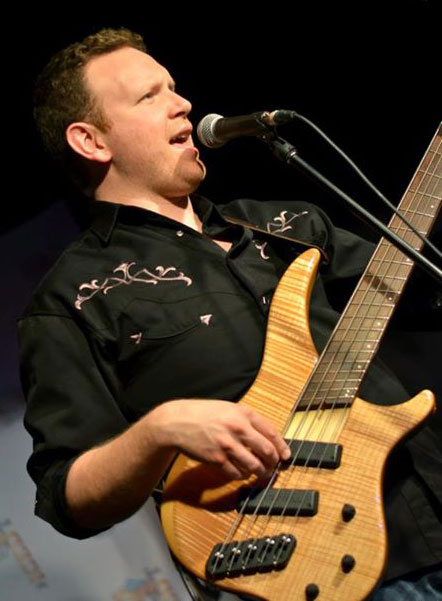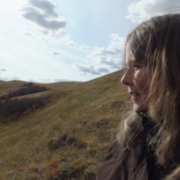Is Tradition Limiting Music Education?
The musical tree has many branches and it’s up to those who are passionate about each branch to keep it vibrant and alive.

Allen McWilliams is a music teacher with Regina Public Schools. He is in his thirteenth year of teaching. On the side of his eduction career, Allen feels lucky to be able to perform with several musical groups in the Regina Area. Allen is an active member of the “Pile of Bones Brass Band, The New Montagues, and the Queen City Brass Band” He has also had the privilege of performing with, “The Regina Jazz Orchestra, and The Alex Runions Band” Being able to perform has been extremely beneficial to his teaching career. He is grateful for all of his colleagues in and out of the classroom that teach him things everyday and make music fun. |
My name is Allen McWilliams and I teach elementary band in Regina Public Schools. There is some debate about traditional forms of music education versus new electronic forms of musical experiences (ex: d.J. and electronic music) and which is more beneficial. Purists may argue that electronic music is the end of music without the understanding of what electronic music is and what skill set it takes to create it. Some newer voices claim that traditional forms of music education are limiting and don’t allow students to think outside the box. My view of this argument is that both sides bring up some good points but may need to educate themselves on the other viewpoint before making claims that one side is more beneficial than the other. Does this make me a fence sitter? Yes, but I get a good view from up here as to what is happening on either side in order to make up my own mind.
I grew up in a traditional music setting. Piano lessons, followed by school band and choir programs as well as community programs. These experiences gave me a certain set of skills both musical and non-musical. The ability to read notation has definitely opened many doors for me. One style/genre of music has made it easier to learn another. Some people find one genre and really dig in and try to influence others to do the same. In my experience, I’ve enjoyed learning about many styles and genres. What makes them different, and what connects them. Musically, culturally, and historically.
Traditionally, schools have offered programs such as choir and band because it’s an effective (cost effective) way to introduce students to music. Compared to private lessons and fees associated with community organizations, the cost for having a student in band is relatively low in terms of budget. In my current position, the school system will subsidize the cost of the fees and an instrument to any family in need. Therefore, no student goes without a musical experience that wants one. Schools try to reach as many students as possible or that are willing through those means.
These programs base themselves on classical music training. Some say that a traditional classical training stifles more modern musical genres and traps students in the past. I have a different take on this. There’s only 12 notes available (thirteen with the octave) and those notes are the basis of all musical genres. So gaining technique with classical training should only help those who chose to move on to other genres of music. I was taught that those who became masters in their musical genre studied the styles that came before. For example: Miles Davis did attend Julliard school of music briefly and then learned, mastered, performed, and recorded almost every genre of jazz in progression through his career in music. Did classical training inhibit his jazz playing? I would say not at all. It’s up to the individual to use what they’ve learned and focus it towards what they want to achieve. If people fall in love with classical music and decide to pursue it, there is absolutely nothing wrong with that. In fact, I applaud them because those are the types of people who bring classical music to life and the world could use more of those people. This is true of every genre of music. The musical tree has many branches and it’s up to those who are passionate about each branch to keep it vibrant and alive.
What I’m saying is true of modern music as well. Those who are passionate and master modern genres of music generally have an interest or study what came before. Hip Hop and Rap’s lifespan is incredibly short on the timeline but what came before? Pop, disco, rock, reggae. Some trace Hip Hop and Rap all the way back to the Griots of West Africa as they delivered stories through rhythm. All this means that the genre’s life span is so short that we don’t have a lot of people who can teach it yet as compared to traditional western musical teachings that have been in existence longer. This means that those who are in the hip hop/rap/DJ scene are pioneers and it’s up to them to teach a new generation about a justified art form in its early stages. I say justified because some people don’t view it that way. However, in the short lifespan of hip hop/rap, there has been tons of material produced by artists and it’s already evolving as an art form. On a light note, I love the fact that the tonight show has done several segments called “The History of Rap” featuring Jimmy Fallon, Justin Timberlake and The Roots. Who better to remind us of where it came from than the people who grew up with it and perform it. The Roots have been there from the beginning. Growing and evolving with it and showing a main stream audience where it came from and where it’s going. It’s Roots so to speak.
So please excuse all of us school music teachers that aren’t teaching hip hop and rap to students and bringing it into curriculum. The majority of us don’t have the experience and skill set to teach this genre. It doesn’t make sense for us to do so and it wouldn’t be accurate or authentic to students. I think if there’s a way to connect music of different styles to curriculum, then it belongs in schools. That means it’s up to the new generation of teachers to bridge that gap and find the ways. Jazz music has been around a lot longer than hip hop and it’s only now making its way into the curriculum. Everything takes time to cycle in and it takes people in the field with experience to help that happen. Music curriculum is often constructed by music teachers for the ministry. Nobody from outside of music education drafted the curriculum for music teachers and told everyone what to teach. It’s up to new teachers to develop new ways of implementing new genres of music into curriculum and to start the process for new ideas.
The good news is that there is a place in our community to learn about hip hop/electronic music. The IMP (Interactive Media and Performance) labs at the University of Regina offer hands on instruction of electronic music. Ex: Turn tables/faders, synthesizers, beat boxes, and drum machines to name a few tools of trade. This venue is popular and is likely to grow and break out into more opportunities for people to learn about this style of music
Do traditional forms of music education limit students in pursuing modern genres of music? My opinion is that it doesn’t. I believe limitations are mostly put on us by ourselves. Some teachers can influence students that one style is better than the other, but it’s up to teachers to be open-minded and even more so that students keep an open mind. I believe teachers don’t actually teach anybody anything. They just show people things. The more engaging they make it, the better it is! It’s up to students to take in knowledge and develop skills to apply to what they feel passionate about. I think the real question is: Without passion, is it still music?
